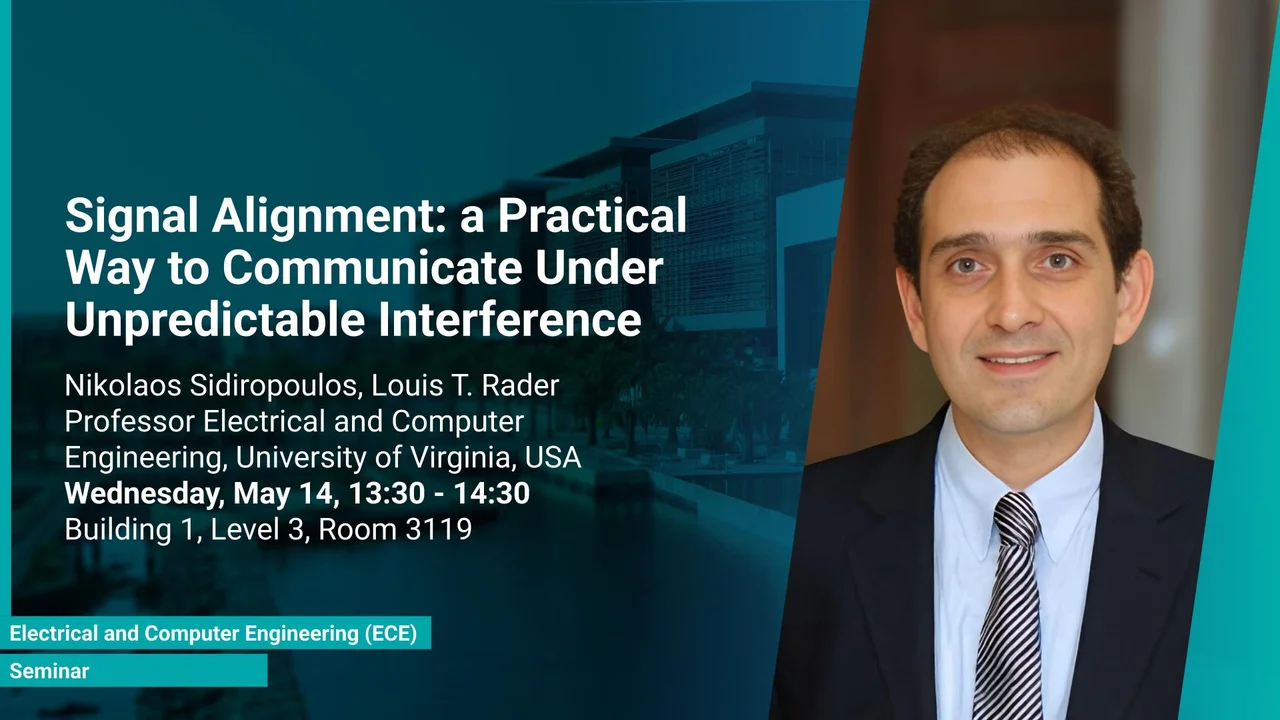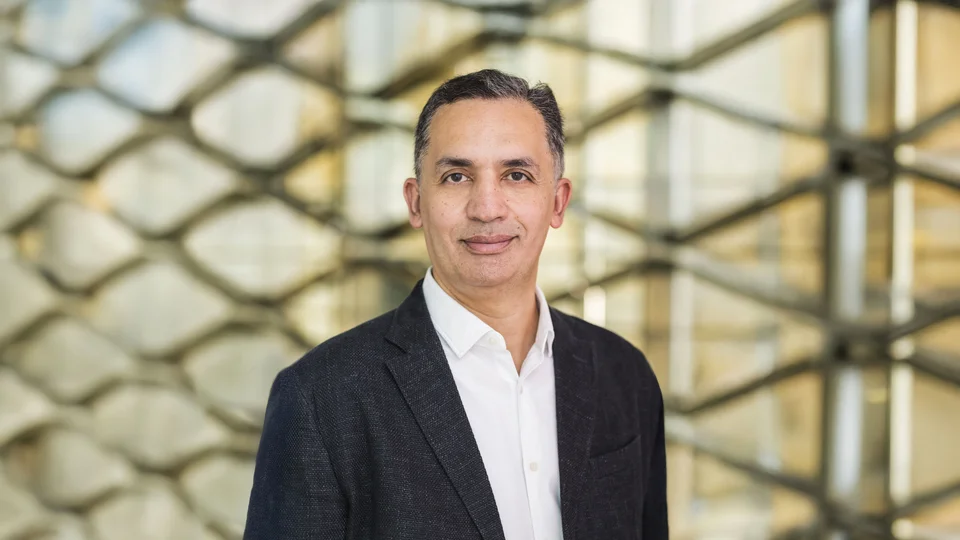
Signal Alignment: a Practical Way to Communicate Under Unpredictable Interference
This talk introduces a practical method for reliable wireless communication amidst interference by using packet repetition and multi-antenna reception to achieve signal alignment, enabling packet recovery through geometric subspace intersection even against adversarial jammers.
Overview
How can we communicate reliably in the presence of unpredictable and potentially debilitating interference? As wireless communication becomes ever more ubiquitous, congestion and interference become increasingly inevitable, especially in contested scenarios. We have recently proposed a simple and practical method that uses packet repetition and multi-antenna reception to build two mixed signal and interference matrix views that contain the same packet in their span – in what we call signal alignment. This enables geometric/algebraic packet recovery via subspace intersection, backed by theoretical guarantees – even in the face of adversarial interference. We will review this idea in theory and in practical software radio implementation. In the process, we will also learn how to intersect two or more subspaces, and what all this has to do with canonical correlation analysis.
Presenters
Nikolaos Sidiropoulos, Louis T. Rader Professor Electrical and Computer Engineering, University of Virginia, USA
Brief Biography
Nicholas D. Sidiropoulos (Fellow, IEEE) received the Diploma in electrical engineering from Aristotle University of Thessaloniki, Thessaloniki, Greece, and the M.S. and Ph.D. degrees in electrical engineering from the University of Maryland at College Park, College Park, MD, USA, in 1988, 1990, and 1992, respectively. He is the Louis T. Rader Professor with the Department of ECE, University of Virginia. He has previously served as a Faculty with the University of Minnesota and the Technical University of Crete, Greece. His research interests are in signal processing, communications, optimization, tensor decomposition, and machine learning. He received the NSF/CAREER award in 1998, IEEE Signal Processing Society (SPS) Best Paper Award in 2001, 2007, 2011, and 2022, and the IEEE SPS Donald G. Fink Overview Paper Award in 2022. He served as IEEE SPS Distinguished Lecturer (2008–2009), Vice President—Membership of the IEEE SPS (2017–2019), and as Chair of the IEEE SPS Fellow Evaluation Committee (2020–2021). He received the 2010 IEEE SPS Meritorious Service Award, the 2013 Distinguished Alumni Award of the ECE Department, University of Maryland, the 2022 EURASIP Technical Achievement Award, and the 2022 IEEE SPS Claude Shannon–Harry Nyquist Technical Achievement Award. He is a fellow of EURASIP (2014).
